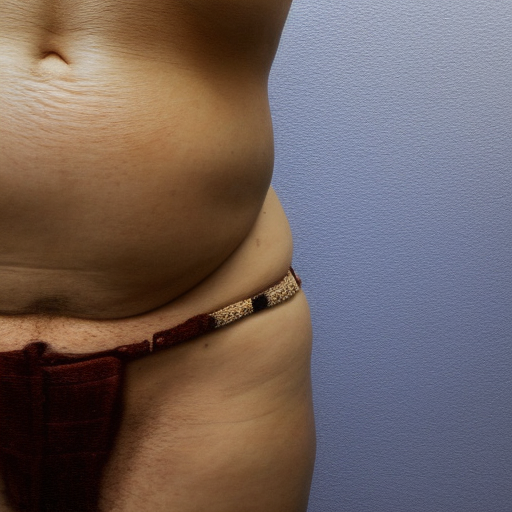How to overcome your childhood
As you sit at your desk, staring at the computer screen, you can’t help but feel overwhelmed by the memories of your childhood. You remember the constant fighting between your parents, the teasing from your classmates, and the feelings of inadequacy that seemed to plague you at every turn. It’s as if these memories are holding you back, preventing you from moving forward and living your best life.
But there is hope. It’s possible to overcome the struggles of your childhood and build a brighter, happier future for yourself. Here’s how:
1. Acknowledge Your Feelings
The first step towards overcoming your childhood is to acknowledge and validate your emotions. It’s natural to feel a range of emotions when thinking about your past, including sadness, anger, and hurt. Allow yourself to feel these emotions and recognize that they are a normal response to difficult experiences.
It’s important to remember that it’s okay to feel these emotions and that it doesn’t make you weak or flawed. In fact, acknowledging and accepting your emotions is a key part of the healing process.
2. Seek Support
Overcoming your childhood can be a challenging and emotional journey, so it’s important to have a support system in place to help you through it. This could include a therapist, a trusted friend or family member, or a support group.
Having someone to talk to about your feelings and experiences can be incredibly helpful, as it allows you to process your emotions and gain new perspectives on your past. It can also help to connect with others who have experienced similar struggles, as it can be comforting to know that you’re not alone.
3. Practice Self-Care
Taking care of yourself is crucial during this process. This means finding healthy ways to cope with your emotions, such as through exercise, journaling, or spending time with loved ones. It’s also important to make sure you’re getting enough sleep, eating a balanced diet, and engaging in activities that bring you joy.
By prioritizing self-care, you’ll be better equipped to handle the challenges that come with overcoming your childhood and building a better future for yourself.
4. Set Boundaries
Setting boundaries is an important step in taking control of your life and healing from your past. This means learning to say no to situations or people that are harmful or toxic, and setting limits on how much time and energy you devote to them.
It’s okay to prioritize your own well-being and to put yourself first. In fact, it’s necessary in order to move forward and create a healthy, fulfilling life.
5. Practice Forgiveness
Forgiveness can be a difficult concept, especially when it comes to forgiving those who have caused us pain in the past. However, forgiveness is an important part of the healing process. It allows us to let go of anger and resentment, and to move forward with a sense of peace and understanding.
Forgiveness doesn’t mean forgetting what happened or condoning the actions of others. It simply means letting go of the negative emotions that are holding you back and finding a way to move on.
6. Create a Positive Future
While it’s important to acknowledge and work through the struggles of your childhood, it’s equally important to focus on creating a positive future for yourself. This means setting goals, making a plan, and taking steps towards a happier, healthier life.
Think about what you want your future to look like and make a plan to get there. This might include setting career goals, finding ways to improve your relationships, or working on personal growth. Whatever it is, it’s important to focus on the future and what you want to achieve.
7. Seek Professional Help
If you’re struggling to overcome the challenges of your childhood on your own, it might be helpful to seek the guidance of a professional therapist or counselor. These trained professionals can provide a safe and supportive space for you to work through your emotions and develop healthy coping strategies.
Therapy can be a powerful tool in the process of healing and moving forward, and it’s a completely normal and acceptable way to seek support. Don’t be afraid to take this step if you feel it could be helpful for you.
8. Find Positive Role Models
Surrounding yourself with positive role models can be incredibly helpful in overcoming your childhood and building a better future. These might be friends, family members, or mentors who inspire you and support you in your journey.
Having positive role models can help to provide guidance, encouragement, and a sense of belonging, all of which can be incredibly valuable during this process.
9. Practice Gratitude
Focusing on the things we are grateful for can be a powerful tool in overcoming our past and building a brighter future. This doesn’t mean that we should ignore or downplay the challenges we’ve faced, but rather that we should take a moment to recognize the good things in our lives and find ways to be thankful for them.
This might mean keeping a gratitude journal, sharing your blessings with others, or simply taking a moment each day to focus on the things you are grateful for. By practicing gratitude, we can shift our focus to the positive and find strength and hope in difficult times.
10. Take Small Steps
Finally, it’s important to remember that overcoming your childhood is a journey and not something that will happen overnight. It’s okay to take things one step at a time and to focus on small, achievable goals.
Celebrate your progress and be kind to yourself as you work towards healing and building a better future. Remember that you are strong and capable, and that you have the power to overcome your childhood and create a life that brings you joy and fulfillment.
In conclusion, overcoming your childhood is a challenging but ultimately rewarding process. By acknowledging and validating your emotions, seeking support, practicing self-care, setting boundaries, seeking professional help, finding positive role models, practicing gratitude, and taking small steps, you can heal from the struggles of your past and build a brighter future for yourself. Remember, you are not alone and there is hope for a better tomorrow.






